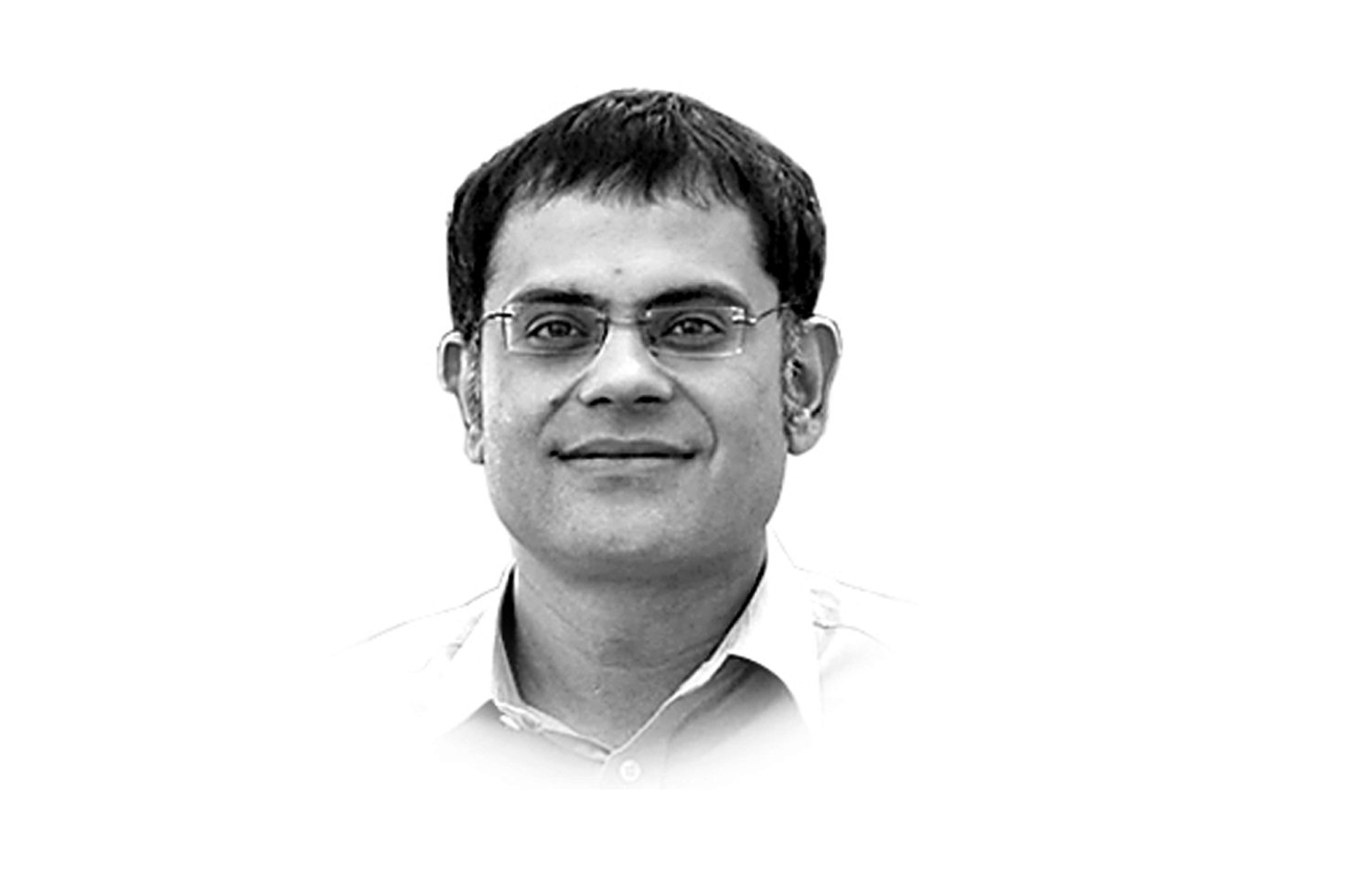
The opening ceremony at the ruins of Moenjo Daro invited heaps of criticism and negative commentary on the danger that the site may face. Sindhi journalists were vigilant and led an active campaign before the launch ceremony. Expert opinion was divided and the actual extent of ‘damage’ is unknown. What the criticism did was to shift the national (and to some extent, international as well) focus on the state of the Indus Valley ruins. For decades, the Pakistani state has, in effect, ‘disowned’ our pre-Islamic heritage. The moment you get into the past, Pakistan’s young and manufactured ‘national identity’ is everything that is not Indian. Bilawal’s decision to celebrate Indus Valley was, therefore, quite meaningful. It led to official patronage from the Sindh government and also unwittingly challenged the construction of the Islamo-nationalist identity that remains contested and has turned sectarian for all practical purposes.
Much fuss was made on social media on the use of the Superman logo, the catchy promotional videos and other features of the festival, which were not strictly according to our ‘values’. A pop singer being kissed on the cheek was an image that invoked the ire of puritans. Even a well-known Sindhi leader questioned on Twitter as to how ‘prostitutes’ were torchbearers of Sindhi culture? This unfolding of our creeping bigotry was instructive as powerful ideas challenge and expose all that we consider normal in the land of the pure. Sindhi nationalists were also upset that there was little of ‘Sindh’ in the galas that the festival organised.
For instance, I attended the Basant on the beach bit of the festival where Punjabi singers performed. Basant itself is identified with Lahore and Punjab’s Vaisakhi festival so its remembrance as a symbol and marker of a once plural culture was important. Regional identities have always been fluid. Basant was also adopted by the Chishti Sufis in medieval times and not all of them were Punjabis. While the high society fashion shows and studio art invited the media glare, the more subaltern donkey cart races and craft trade invited large audiences. A multi-class and varied series of events, not particularly Sindhi all the time, defined what turned out to be two weeks of festivities.
The final ceremony and speech made by Bilawal at Makli, Thatta, was also remarkable for its courage. A kind of narrative that even his party had abandoned after the murder of Benazir Bhutto. Dr Salam, Pakistan’s only Nobel Laureate, found a mention. Let’s see how far Bilawal can go. The greatest of challenges is to set an alternative narrative, of rejecting extremist mindsets. It is unfair to hold Bilawal responsible for what his party could not do during its tenure in government. Pakistan’s moderate parties during 2008-13 could not even start a decent public campaign against extremism, let alone fight the menace. The PPP, therefore, must share the blame for being adrift. Bilawal’s outlook is a turning point of sorts. And the Sindh Festival, for all its limitations, became a powerful statement of how our pluralistic past continues and is not dead despite the efforts to bury it. Fixing Sindh’s governance now becomes even more important. It is not enough to hold festivals and show resolve verbally. The PPP-led provincial government must check the growth of the seminaries network that is taking root in the countryside. In Karachi, the clean-up operation and institution-building is another test case. Bilawal must steer his party towards setting new precedents while in office. The immediate task would be to revise the education curricula for which a committee under a sitting minister has been set up. There is no reason why the MQM and Sindhi nationalists won’t support such efforts. The Sindh Festival must not be remembered as a one-off exercise, but as a new beginning. Let’s wish Bilawal the best while restating that time may be running out for reforms.
Published in The Express Tribune, February 20th, 2014.
Like Sports on Facebook, follow @ETribuneSports on Twitter to stay informed and join in the conversation.
COMMENTS (29)
Comments are moderated and generally will be posted if they are on-topic and not abusive.
For more information, please see our Comments FAQ



1732256278-0/ellen-(1)1732256278-0-165x106.webp)
1725877703-0/Tribune-Pic-(5)1725877703-0-165x106.webp)







Despite few contradictions, overall an excellent draft! Raza Rumi keep it up!
@Parvez: Very well said. Spot on!
Agreed 100% with the writer. Haters gonna hate but I loved the Sindh Festival. Hoping to have one next year too.
Sindh Festival is a new Brand, which somehow going to represent our history, heritage, culture and identity, specially for Sindh province but at the same time it will be a new Identity of our multicultural region. It is a very constructive approach to bring everybody atleast on one platform, again specially for sindh where "Dharti" (land) is as precious as "Mother". I really appreciate your writing and respect for your positive thinking... "Jiye Sindh and Pakistan Zindabad"
How can we claim to be descendants of a civilization that went extinct around 2000 BC. Further, the Indus Valley civilization encompassed all of modern day Pakistan and was not just limited to Sind. It's other great city ruins, Harrapa, is near Sahiwal in Punjab. Since then multitude of empires have come and gone. The Sind festival by simply focusing on our links with an empire that vanished 2000 BC and not celebrating the diverse influences of other periods of history to its cultural development is actually manufacturing history. The major role in today's Sindhi culture and identity comes from the adoption of Muslim faith by modern day Sindhis. This facet of our culture ( that is incorporation of Islam) in Sindhi culture and traditions should be celebrated the most. Culture is like a stream. It incorporates something of the areas it moves through, not like a stagnant pond forever stuck in the past.
This is part of the PPP's bread and circus policy. The bread is the Benazir income support program and the circus is the Sindh festival.
To promote culture in the name of putting your foot print into politics PPP put 4-5 billion rupees, but being the govt since last 6 years, what is the PPP performance in managing Floods and improving education standards in the Province is questionable?
Cultural activities must be outset in the whole country to counter the puritans version.
Looking past its flaws and appreciating the essence of the Festival, R.R. you are the sole voice of reason amongst a flock of naysayers. The naysayers would rather post comments under articles and watch the ruins of mohenjodaro crumble away along with the traditions and culture of this land - and by default, allowing for the vacuum to be filled with myopic pseudo religious ideology. If the commentators here believe in pluralism, support what this festival has achieved. If not, feel free to leave your comments here.
Bilawal would be better of if he does "Sindh education festival" that ill take care of extremism.
No question he spoke courageously against extremism and hold up to his culture. My only critique is that he should have raised money from sponsorships for the event instead of using taxpayer money.
Great to have something positive for a change. Sindh is beautiful, and Sindh festival is an attempt to celebrate some of the beauty of Sindh and Sindhi culture. Jiye Sindh.
It looks like this festival was a good thing.
Very good Op-Ed. Sindh Festival was indeed an excellent initiative. Who cares who organized it? The festival was good and that's what matters in the end.
Only in this country can people commend a cultural festival as a renaissance of the lost history of the province. A 24 year old kid has a concert on the 5000 year old ruins of a mighty civilization and the jiyalas go crazy on this supposedly unachievable miraculous feat. Remember when they played their lyre while the country burned and sank from 2008-2013? It is also unfortunate that, the otherwise sane Raza Rumi, would chose to write on this topic when the country is in such a critical situation.
Sindh Festival is a political stunt where giving importance to provincial culture heritage is only "secondary". Mind it, "secondary"! Organising concerts and ghazal nights to promote a certain culture where the entry-pass could cost as high as 10,000 Rs is only tantamount to sidelining the true adherents of that culture who are, if anything, unable to partake even in such a "cultural-promotion" because they are not as rich as Bilawal and other elites participating in such culture-promotion stunts.